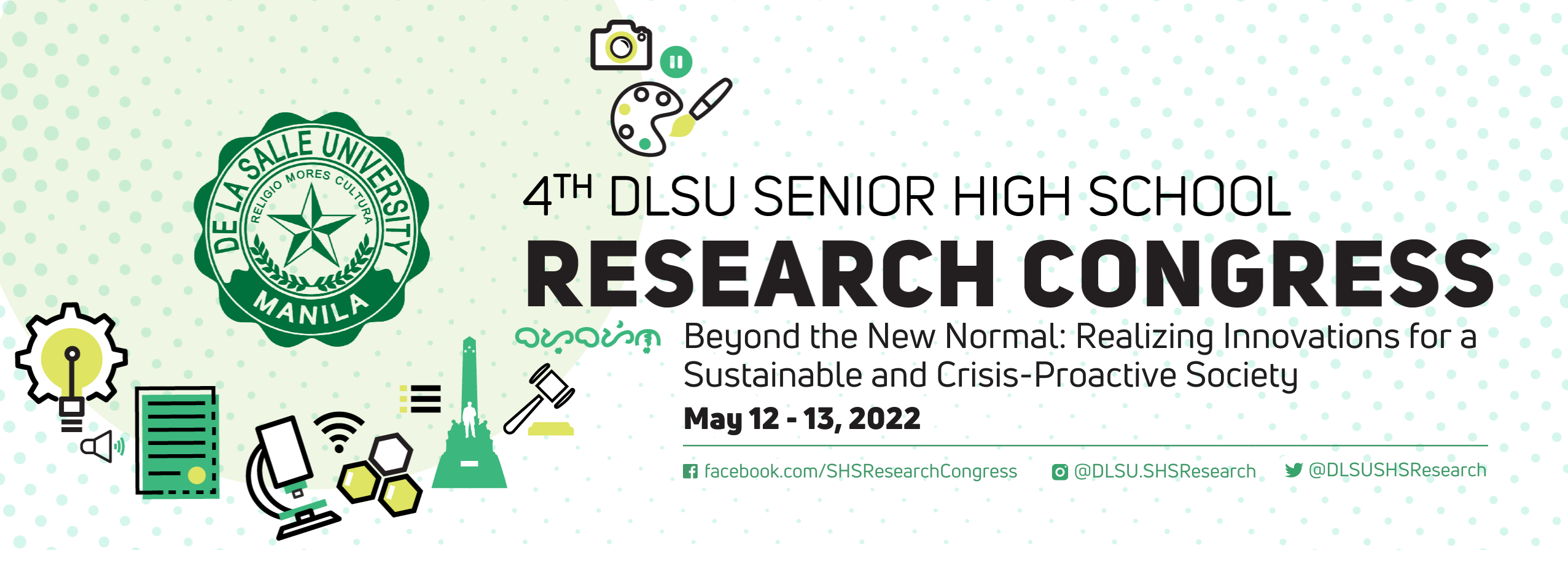Document Types
Business Presentation
Research Theme (for Paper Presentation and Poster Presentation submissions only)
Business Research
Research Advisor (Last Name, First Name, Middle Initial)
Reynaldo A. Mones
Start Date
13-5-2022 10:30 AM
End Date
13-5-2022 12:00 PM
Abstract/Executive Summary
In the corporate world's continual pursuit of social responsibility, businesses are placed under the scrutiny of the public as social decisions are made within, more so outside written policies and moral principles. A boycott is a communal withdrawal against a company whose malpractices disagree with the public. With the rising participation in this method of consumer activism, this qualitative research aims to discover the views of the Lasallian youth regarding this activity, exploring their support and perception of its success, relevance, and trends. 54 Senior High School students from the De La Salle University Integrated School (Manila) were chosen through cluster sampling across its two grade levels: Grade 11 and Grade 12, to undergo an unstructured online interview. Based on the findings, the Lasallians commonly define boycotting as a concerted disapproval against a business's malpractices and violations with a two-fold objective between its participants and the organization itself: amplify the public's voice and instigate change within the company's ethics. Moreover, one's emotions, self-esteem, and guilt have been identified as motivations that may increase an individual's boycott participation. Though most Lasallians have not participated in boycotts due to external factors (finances, domestic autonomy, and more), social media has been identified as a convenient and effective method to discuss corporate malpractices, encouraging consumer activism. In conclusion, most Lasallians are in favor of boycotts given the parameters discussed above.
Keywords
boycott; consumer activism; corporate ethics; corporate malpractices; Lasallian
Included in
Boycott Practices: A Study of the Lasallian Youth’s Perceptions and Involvement with Consumer Activism
In the corporate world's continual pursuit of social responsibility, businesses are placed under the scrutiny of the public as social decisions are made within, more so outside written policies and moral principles. A boycott is a communal withdrawal against a company whose malpractices disagree with the public. With the rising participation in this method of consumer activism, this qualitative research aims to discover the views of the Lasallian youth regarding this activity, exploring their support and perception of its success, relevance, and trends. 54 Senior High School students from the De La Salle University Integrated School (Manila) were chosen through cluster sampling across its two grade levels: Grade 11 and Grade 12, to undergo an unstructured online interview. Based on the findings, the Lasallians commonly define boycotting as a concerted disapproval against a business's malpractices and violations with a two-fold objective between its participants and the organization itself: amplify the public's voice and instigate change within the company's ethics. Moreover, one's emotions, self-esteem, and guilt have been identified as motivations that may increase an individual's boycott participation. Though most Lasallians have not participated in boycotts due to external factors (finances, domestic autonomy, and more), social media has been identified as a convenient and effective method to discuss corporate malpractices, encouraging consumer activism. In conclusion, most Lasallians are in favor of boycotts given the parameters discussed above.


